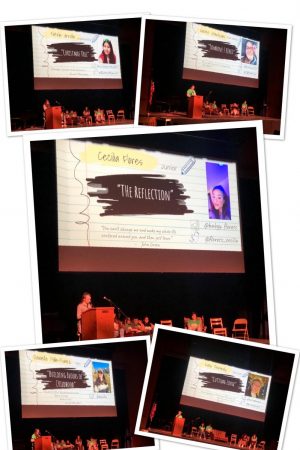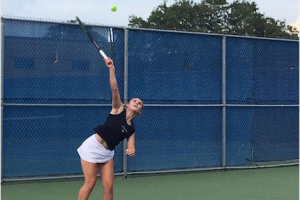Got drama? Get over it or get after it
February 1, 2016
As a high school student, I have witnessed a lot of fights: physical, verbal, electronic. I always catch myself wondering why it started. Is the issue really so important that people feel the need to make their personal lives a public event? What effect does it have in the long run? What my peers, what all high school students for that matter, don’t seem to get is that the conflict that appears important and life-altering now, isn’t going to matter in a week’s time. Dean of Students Mr. Michael Grosch commented, “There’s just a lot of drama in school. Kids can’t let stuff go.”
One of the reasons things are so hard to let go is the contemporary obsession with social media. This generation, and I’m not just talking about teenagers, depends on social media to make their existence known. Facebook and Twitter accounts are common and to be without is to be abnormal. Grosch explained the impact of the internet on student conflict: “It allows kids to be mean to each other 24/7.” Grosch also pointed out that while the meanness is expanded through social media, its impact is eliminated: “It allows kids to not actually see the immediate reaction of the other person. We as humans are programmed to be empathetic, to see that we are hurting someone. It should be hard for us to be mean, but the internet allows us to be mean and not deal with the consequences.” Whether we state our subject explicitly or not, it’s obvious when someone is trashing another person.
The vast and open nature of the internet means we should be excited to share opinions, but because we spend so much time sharing opinions about each other, some of us are becoming too sensitive.
Today, we have to be extremely careful about what we say in order to avoid pointless conflict. Others who voluntarily give opinions, sometimes in attempt to start a conversation, find people attacking them because they think they’re being attacked. Others censor themselves altogether, fearing the backlash they may well receive for expressing their feelings. Our meanness is leading to our silence. Now, whether we participate or stay away from online conflict, we risk isolation.
There are two possible solutions to student-initiated conflict: get over it or confront each other. Not every tweet is a subtweet, not everything is about you. The other solution might be to address conflict directly rather than let it be amplified online or ignored. The school has started a new preventative program called “Restorative Justice,” which aims to resolve internet-based situations. Grosch explained, “It brings the parties together…whether it’s a student and a student or a student and a teacher. [The conversation might go like this:] ‘The fact that I have hurt you has damaged our relationship; at the end of the day, I don’t like you and you don’t like me, but at least now we understand. Let’s leave each other alone.’”
I think what the school is doing is a good idea because it gives students the chance to explain themselves to one another. It gives students the opportunity to understand why they are in the situation that they are in. I believe that teenagers are naturally dramatic and sensitive, taking everything to the heart. That drama is important to growing up, but only when we have a chance to resolve it. We should handle the situation that we are in face to face instead of attacking from or hiding behind a screen.







